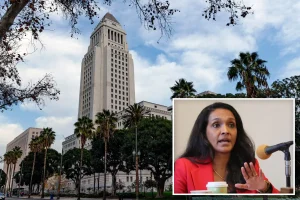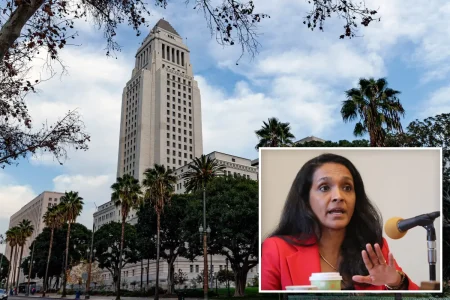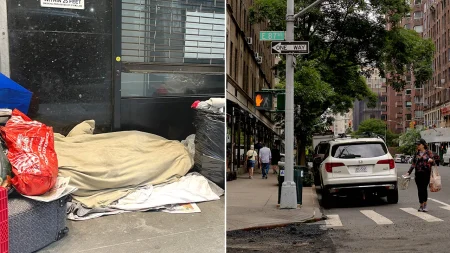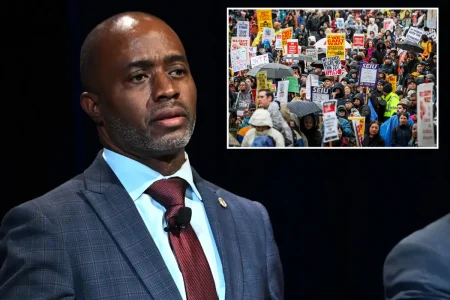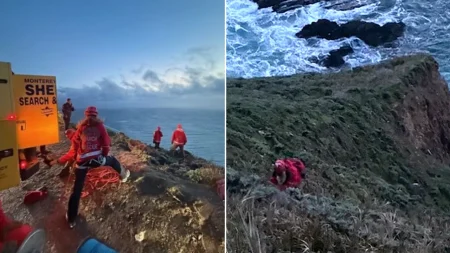Russian Artist Who Faced Imprisonment for Anti-War Stance Reflects on Freedom and Conviction
Standing for Peace: Aleksandra Skochilenko’s Journey from Prison to Freedom
In the dimming light of a Moscow afternoon, Aleksandra Skochilenko sits with a quiet intensity that belies her recent ordeal. The 33-year-old artist and musician, recently released in a major prisoner exchange between Russia and Western nations, speaks with measured words about her imprisonment for protesting Russia’s invasion of Ukraine. “The values of freedom of speech, of peace, could be more important than spending even 10 years in jail,” she says, her voice steady despite the weight of her experience. Skochilenko, known affectionately as Sasha to friends and supporters, became an international symbol of resistance after her arrest in April 2022 for replacing supermarket price tags with anti-war messages. Her case highlights the Kremlin’s intensifying crackdown on dissent and the personal cost borne by those who dare to speak against the official narrative in contemporary Russia.
Skochilenko’s simple act of protest—swapping ordinary price labels with small paper notes containing facts about civilian casualties in Ukraine—led to charges of spreading “deliberately false information” about the Russian military. She faced up to 10 years imprisonment under new laws criminalizing criticism of what Russian authorities insist on calling a “special military operation.” For nearly two years, Skochilenko was held in pretrial detention in St. Petersburg, her health deteriorating due to celiac disease and the facility’s inability to provide appropriate gluten-free food. Human rights organizations worldwide adopted her cause, recognizing her as a prisoner of conscience whose only “crime” was expressing opposition to war. “I never imagined that placing small paper notes in a grocery store would lead to such consequences,” Skochilenko reflects. “But I couldn’t remain silent while watching what was happening. Silence felt like complicity.”
The Human Cost of Political Dissent in Russia’s Current Climate
The psychological toll of imprisonment weighed heavily on Skochilenko, who found herself thrust into Russia’s penal system with little preparation. Despite the harsh conditions, she managed to continue creating art and music during her detention, sending letters and drawings that were shared by supporters on social media platforms. These creative expressions became a lifeline, connecting her to the outside world and preserving her spirit amid isolation. “Art became my resistance, my way of maintaining dignity,” she explains. “When they take everything else away—your freedom, your privacy, your comfort—they cannot take your mind unless you surrender it.” Fellow activists describe her unwavering commitment to her principles, even as the prospect of a decade-long sentence loomed. Her partner, Sonya Subbotina, who campaigned tirelessly for her release, recounts visiting Skochilenko in detention: “Even behind bars, she remained concerned about others, asking about friends, about the anti-war movement, about ordinary Russians struggling under repression.”
The prisoner exchange that secured Skochilenko’s freedom was the largest between Russia and the West since the Cold War, involving over 20 individuals across multiple countries. Among those released alongside her were prominent political prisoners including Vladimir Kara-Murza, Ilya Yashin, and American journalist Evan Gershkovich. The swap underscored the diplomatic complexities of securing freedom for those imprisoned on politically motivated charges in Russia, where the space for legitimate dissent has narrowed dramatically since the invasion of Ukraine. Human rights monitors estimate that thousands of Russians have been detained, fined, or imprisoned for anti-war positions since February 2022. Maria Kuznetsova, a representative from OVD-Info, which tracks political persecutions in Russia, notes: “Skochilenko’s case exemplifies the disproportionate punishment faced by ordinary citizens who simply express their opposition to war. Her willingness to sacrifice her freedom for her principles resonates with many Russians who share her views but fear similar consequences.”
Finding Purpose in Adversity: How One Voice Can Echo Beyond Prison Walls
Now adjusting to life outside Russia, Skochilenko speaks of her unexpected journey from local artist to international symbol of peaceful resistance. Prior to her arrest, she was known in St. Petersburg’s cultural circles as an illustrator, musician, and LGBTQ+ activist whose work often explored themes of mental health and personal freedom. Her graphic novel “The Book About Depression” had gained recognition for its sensitive portrayal of psychological struggles. That creative background served her well during imprisonment, providing tools to process trauma and maintain hope. “I never set out to be an activist or political figure,” she acknowledges. “I was simply a person who couldn’t reconcile with what I was seeing. The small act I chose—replacing price tags with truths about the war—was what I could manage as one individual citizen.”
The global attention to Skochilenko’s case has afforded her a platform she now navigates with careful consideration. She speaks of responsibility toward those still imprisoned in Russia for their anti-war positions, many whose names remain largely unknown internationally. “My freedom comes with obligation,” she emphasizes. “There are hundreds, perhaps thousands, still behind bars for similar actions or sometimes merely for reposting information online.” Skochilenko has begun meeting with international human rights organizations and political leaders to advocate for continued pressure on Russian authorities. Despite her ordeal, she maintains that ordinary citizens have power to effect change through small, persistent actions. “What happened to me shows both the regime’s fear of truth and the potential impact of individual conscience. If they weren’t concerned about people knowing reality, they wouldn’t imprison those who speak it.”
The Broader Impact: Russia’s War on Ukraine and the Struggle for Truth
Skochilenko’s case exists within the larger context of Russia’s information control surrounding the Ukraine invasion. Since February 2022, authorities have blocked independent media outlets, criminalized terminology that contradicts official narratives, and driven many journalists and activists into exile. Social media platforms face restrictions, and public education has been reshaped to promote state-approved perspectives on the conflict. Against this backdrop, even minimal gestures of dissent—like Skochilenko’s price tag substitutions—represent significant challenges to the government’s narrative monopoly. Political analyst Dmitri Kovalev observes: “The severity of punishment for such minor acts of protest reveals the fragility of the regime’s position. When truth becomes threatening enough to warrant a decade in prison, it speaks volumes about the government’s relationship with reality.”
While recovering from her imprisonment experience, Skochilenko has begun documenting her detention through writing and visual art. These creative reflections serve both as personal processing and historical documentation of political repression in contemporary Russia. She describes prison as a microcosm of society’s broader dysfunctions: corruption, arbitrary power, and systems that crush individuality. Yet amid these observations comes a surprising note of optimism. “Even in prison, I witnessed small kindnesses, moments of solidarity between women from different backgrounds. This gives me hope for Russia’s future beyond current darkness,” she shares. As our interview concludes, Skochilenko returns to her opening thought with added perspective: “The values of freedom of speech, of peace, could be more important than spending even 10 years in jail. But I’ve learned that speaking truth isn’t simply about personal sacrifice—it’s about preserving our collective humanity when systems of power demand our complicity in lies. That’s something worth protecting, regardless of the cost.”


